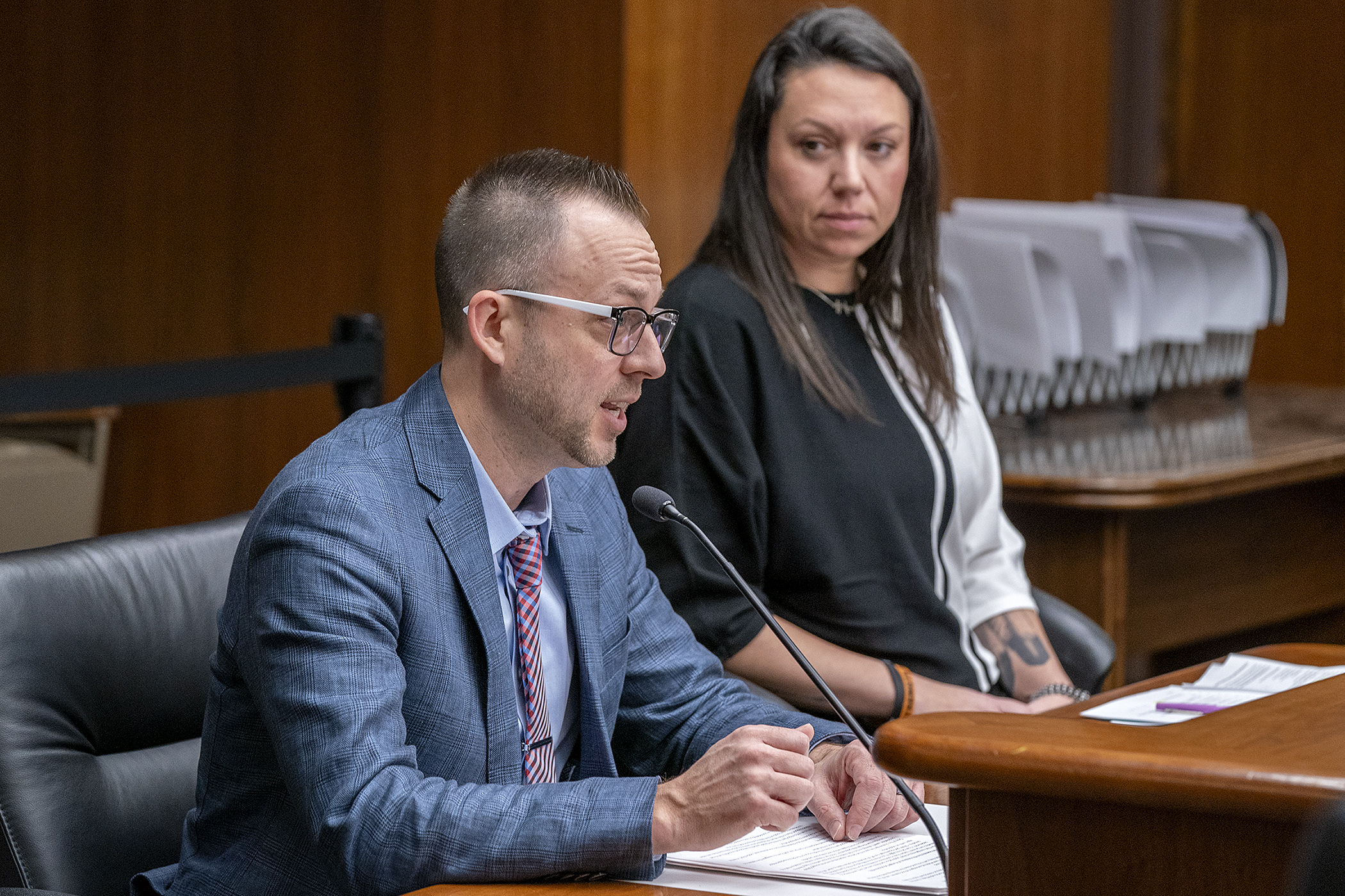Proposal seeks to establish food assistance as medicine pilot program

Minnesota had more than 7.5 million visits to food shelves last year. That unfortunate record was up 1.8 million visits from 2022, which itself had been a record-setting year.
A number of factors have contributed to this problem and the House Children and Families Finance and Policy Committee discussed several proposals Tuesday to address it.
One that received the most discussion was HF3469, sponsored by Rep. Heather Keeler (DFL-Moorhead). The bill, as amended, would establish the Supplemental Nutrition Assistance Program as a medicine pilot program.
“It matters what we put in our body, food is medicine,” Keeler said while explaining the bill, which was laid over. “ … Studies tell us that food insecure households spend almost 45% more on health care costs than families that have food secure homes.”
Participants would receive a $175 monthly benefit along with assistance navigating the often-complex federal requirements that Keeler said have resulted in almost 6,000 Minnesotans losing eligibility for the program. It would also implement a two-year moratorium on terminating food assistance for those who are eligible.
Several testifiers said that SNAP, a federal program that helps those with a low income get food for nutritious meals, is the state’s most effective method of fighting food insecurity.
But Rep. Kim Hicks (DFL-Rochester) said she has seen firsthand in her time as a community worker how easy it can be for someone to fall through the cracks. For example, she was helping a high school senior who was homeless and had a developmental disability that made it difficult for him to meet the federal work requirements for SNAP.
“It made no sense to me that this young man, who had done nothing wrong, was getting no support because he didn’t know how to navigate a system and now we were starving him on top of everything else,” she said. “… This [bill] fixes that for young people like him and for other people.”
Several Republicans raised questions about the potential costs of the bill, saying the state needs to watch what it spends given the possibility of future budget deficits.
Work on the bill, including the funding needed, will continue but Rep. Dave Pinto (DFL-St. Paul), the committee chair, said it was important to give the proposal an early hearing so all the necessary conversations can begin.
Related Articles
Search Session Daily
Advanced Search OptionsPriority Dailies
Speaker Emerita Melissa Hortman, husband killed in attack
By HPIS Staff House Speaker Emerita Melissa Hortman (DFL-Brooklyn Park) and her husband, Mark, were fatally shot in their home early Saturday morning.
Gov. Tim Walz announced the news dur...
House Speaker Emerita Melissa Hortman (DFL-Brooklyn Park) and her husband, Mark, were fatally shot in their home early Saturday morning.
Gov. Tim Walz announced the news dur...
Lawmakers deliver budget bills to governor's desk in one-day special session
By Mike Cook About that talk of needing all 21 hours left in a legislative day to complete a special session?
House members were more than up to the challenge Monday. Beginning at 10 a.m...
About that talk of needing all 21 hours left in a legislative day to complete a special session?
House members were more than up to the challenge Monday. Beginning at 10 a.m...